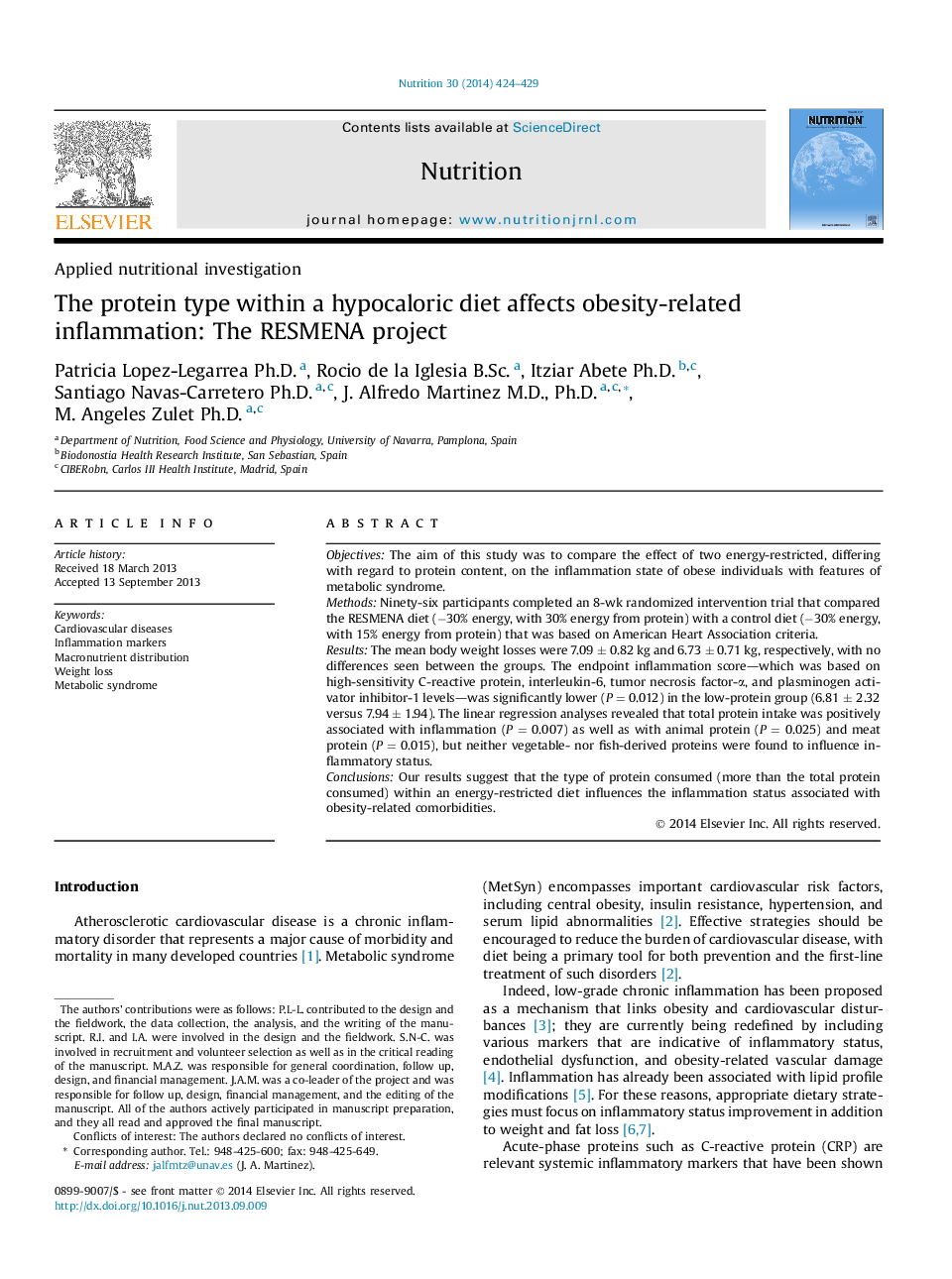| کد مقاله | کد نشریه | سال انتشار | مقاله انگلیسی | نسخه تمام متن |
|---|---|---|---|---|
| 3276367 | 1208556 | 2014 | 6 صفحه PDF | دانلود رایگان |

ObjectivesThe aim of this study was to compare the effect of two energy-restricted, differing with regard to protein content, on the inflammation state of obese individuals with features of metabolic syndrome.MethodsNinety-six participants completed an 8-wk randomized intervention trial that compared the RESMENA diet (−30% energy, with 30% energy from protein) with a control diet (−30% energy, with 15% energy from protein) that was based on American Heart Association criteria.ResultsThe mean body weight losses were 7.09 ± 0.82 kg and 6.73 ± 0.71 kg, respectively, with no differences seen between the groups. The endpoint inflammation score—which was based on high-sensitivity C-reactive protein, interleukin-6, tumor necrosis factor-α, and plasminogen activator inhibitor-1 levels—was significantly lower (P = 0.012) in the low-protein group (6.81 ± 2.32 versus 7.94 ± 1.94). The linear regression analyses revealed that total protein intake was positively associated with inflammation (P = 0.007) as well as with animal protein (P = 0.025) and meat protein (P = 0.015), but neither vegetable- nor fish-derived proteins were found to influence inflammatory status.ConclusionsOur results suggest that the type of protein consumed (more than the total protein consumed) within an energy-restricted diet influences the inflammation status associated with obesity-related comorbidities.
Journal: Nutrition - Volume 30, Issue 4, April 2014, Pages 424–429